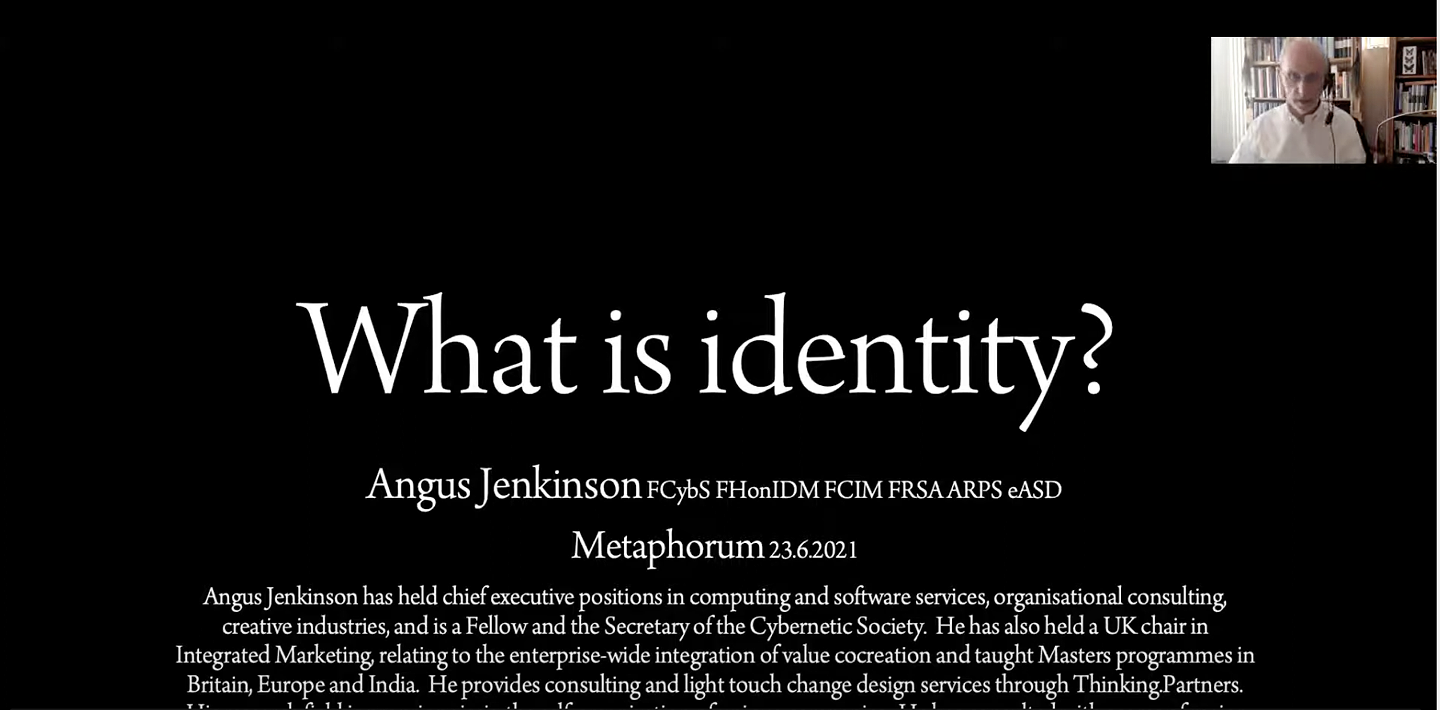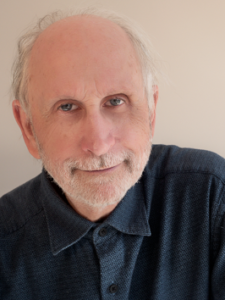
An organisation — company, NGO, government department — is always understood to have an identity but how this is described is very variable and how it is handled in VSM sometimes curious. Finance, marketing, HR et cetera approach it differently. Several systems theories approach it as a matter of practitioner definition of the system to be modelled. An autopoietic identity is related to organizational closure. The mouse running from a cat has the mousy equivalent of an existential experience.
So how should we think about identity and how is this reflected in the methods of management and the use of tools such as VSM. The exploration will consider the possibility that an organisation is a social organism with its own non-arbitrary self-organizing inhering identity. It will ask how such tools as policies in VSM S5 relate to this as well as the extent to which identity cannot be confined to S5. What type of paradigm for the wholeness of an organisational entity is needed? How is this in turn related to its environmental ecosystem? In this context, what does it mean to be a chief executive and what do they (and other leaders) do? As time allows this will also question prevailing systems and complexity models.
Speaker Bio
 Angus Jenkinson has held executive positions in computing and software services, organisational consulting, creative industries, and is a Fellow and the Secretary of the Cybernetic Society. He has also held a UK chair in integrated marketing, relating to the enterprise-wide integration of value cocreation and taught Masters programmes in Britain, Europe and India.
Angus Jenkinson has held executive positions in computing and software services, organisational consulting, creative industries, and is a Fellow and the Secretary of the Cybernetic Society. He has also held a UK chair in integrated marketing, relating to the enterprise-wide integration of value cocreation and taught Masters programmes in Britain, Europe and India.
He provides consulting and light touch change design services through Thinking.Partners. His research field is Propriopoiesis, the self-organization of unique companies. He has consulted with scores of major firms across a variety of required services. He is also an exhibited photographer and a fellow or hon fellow of three professional institutions and member of two others.
